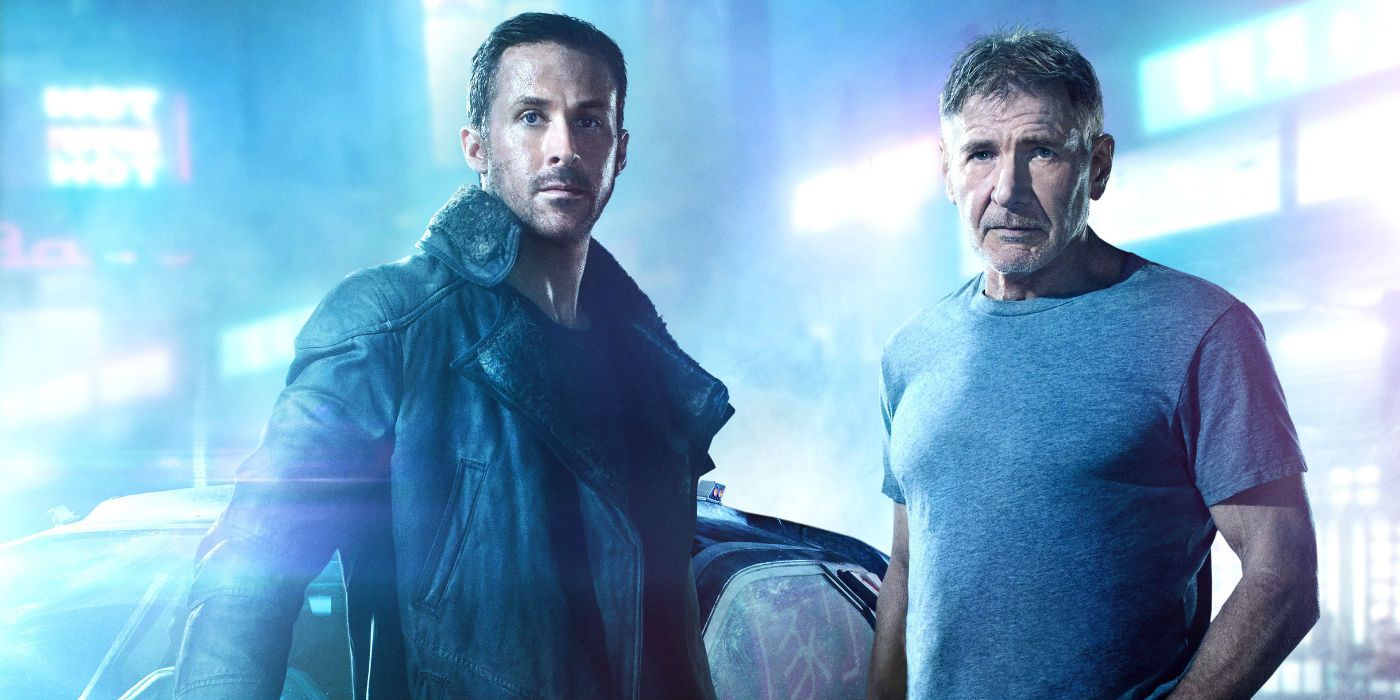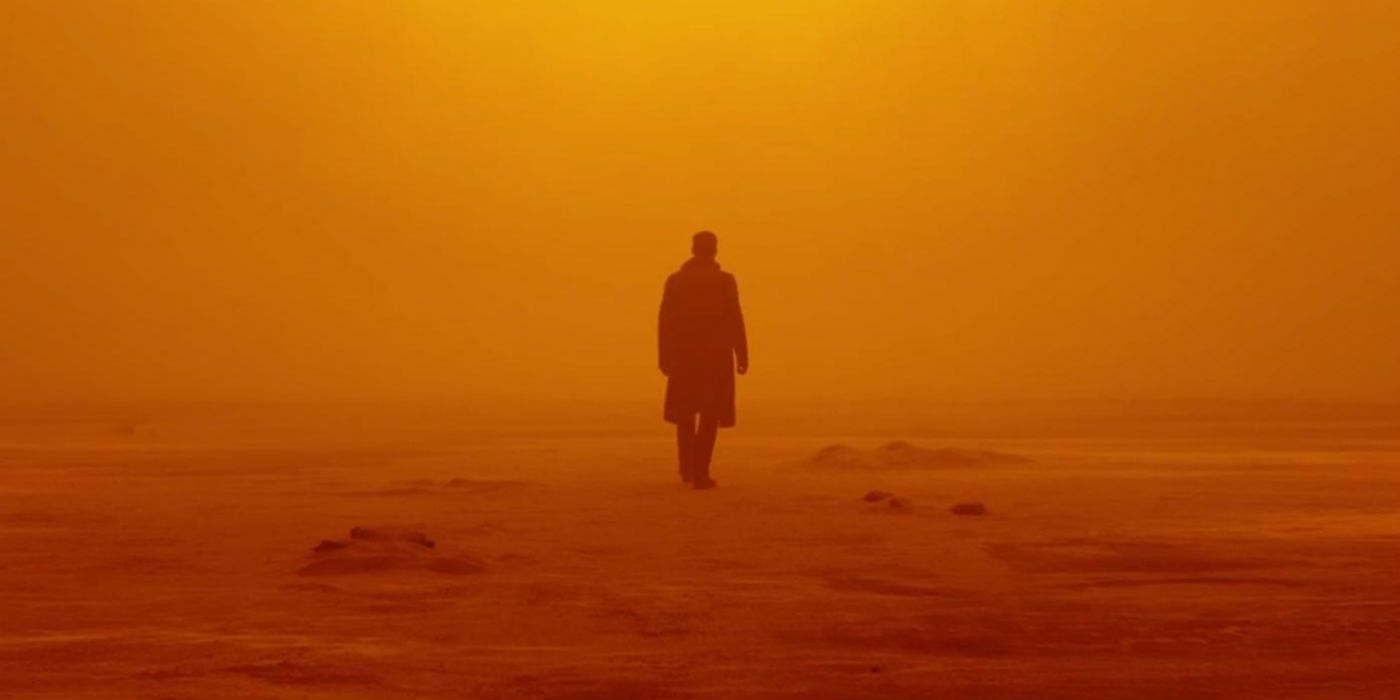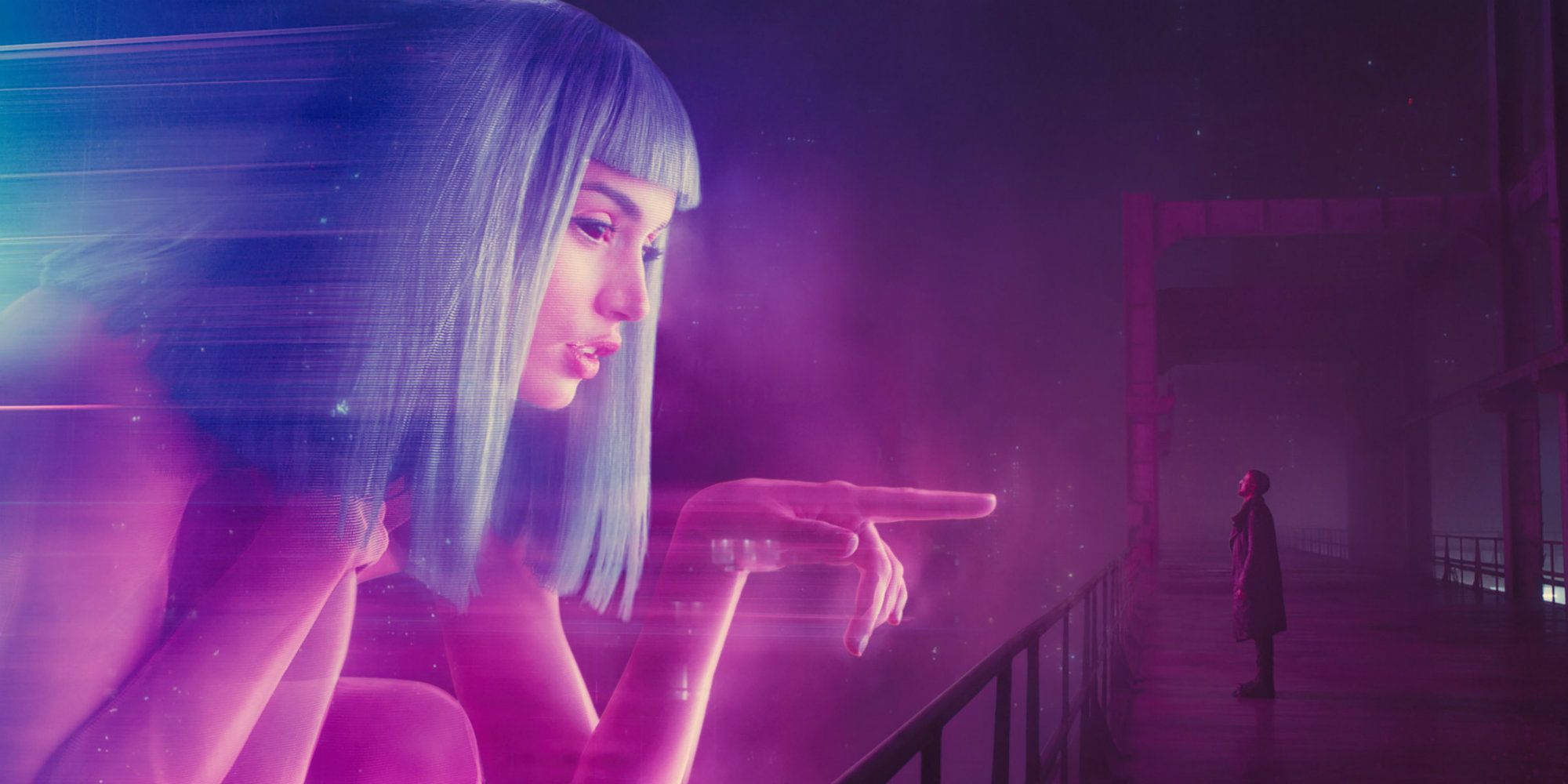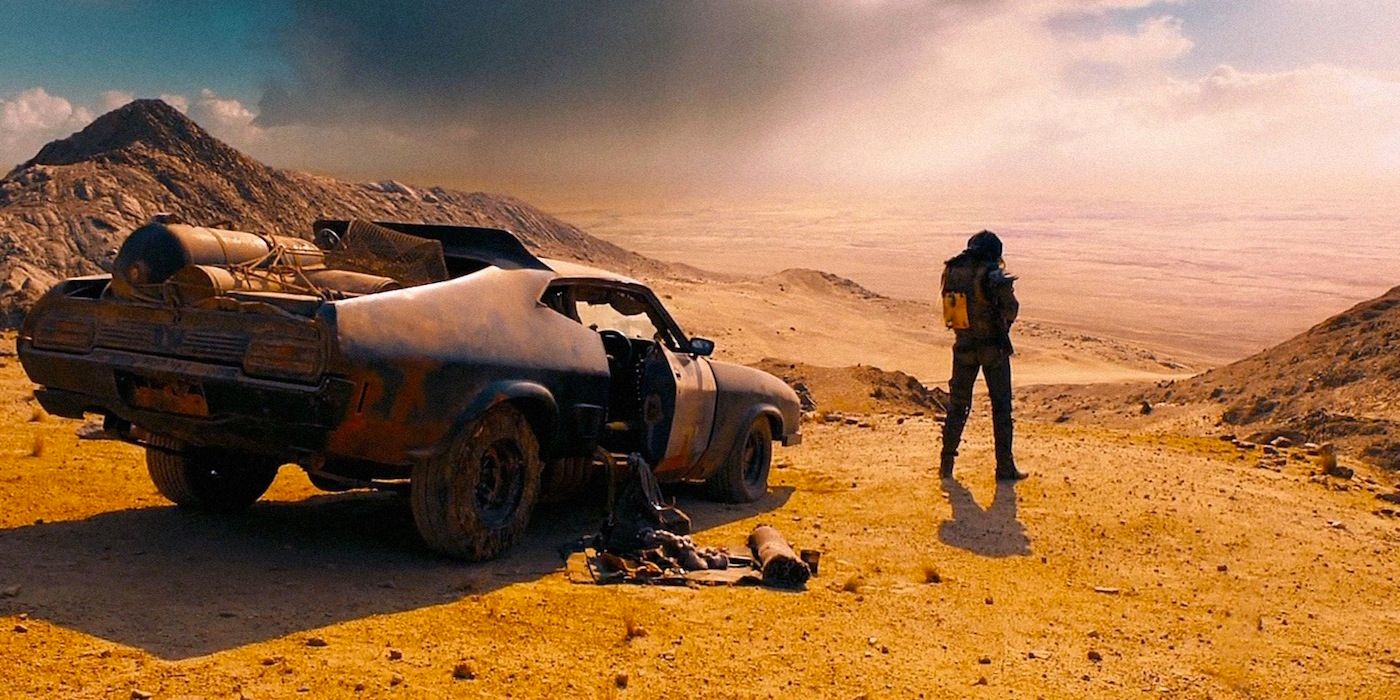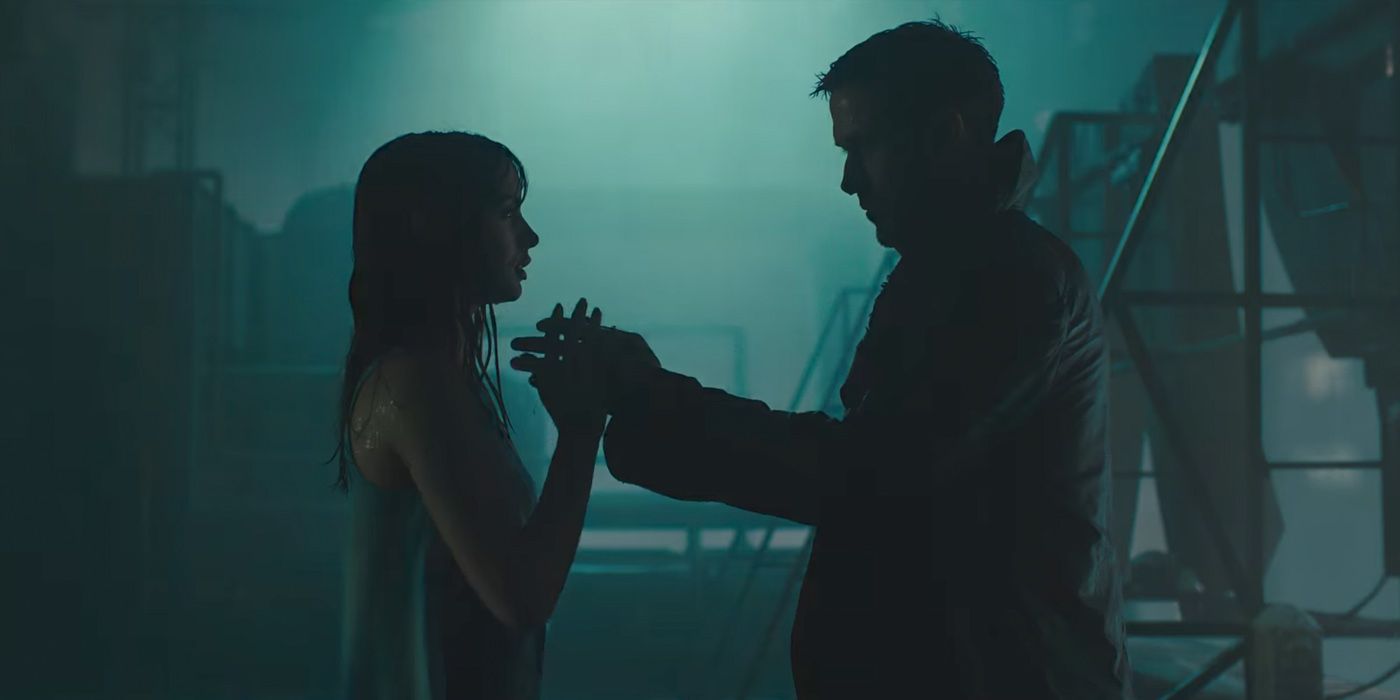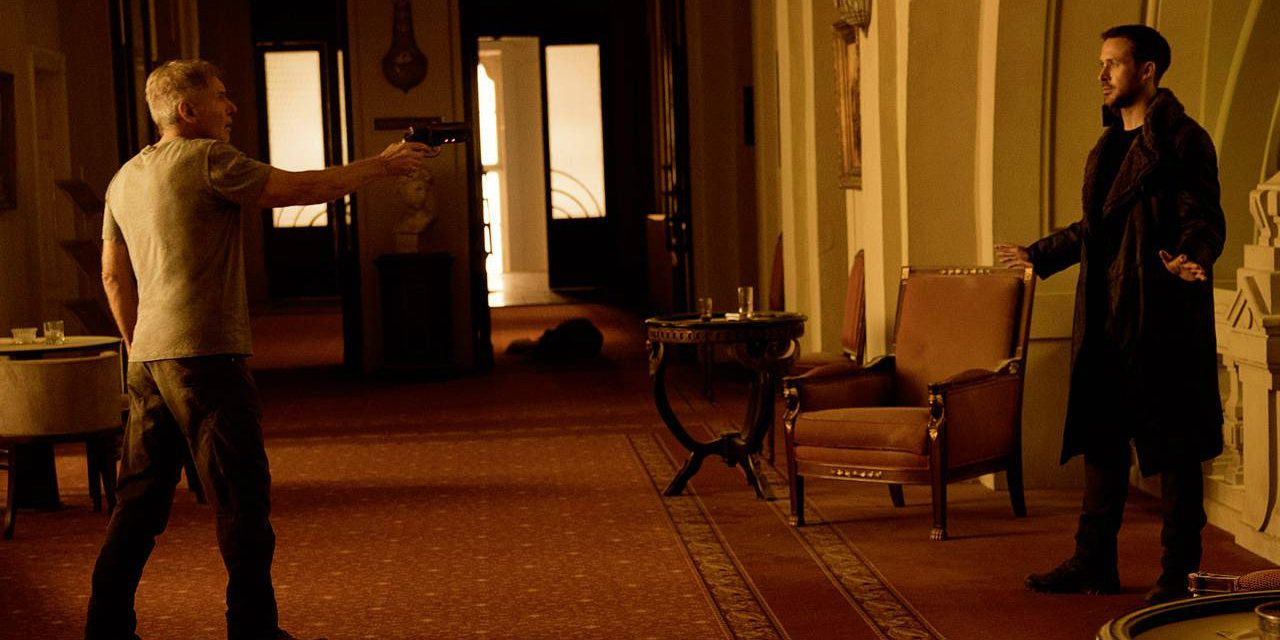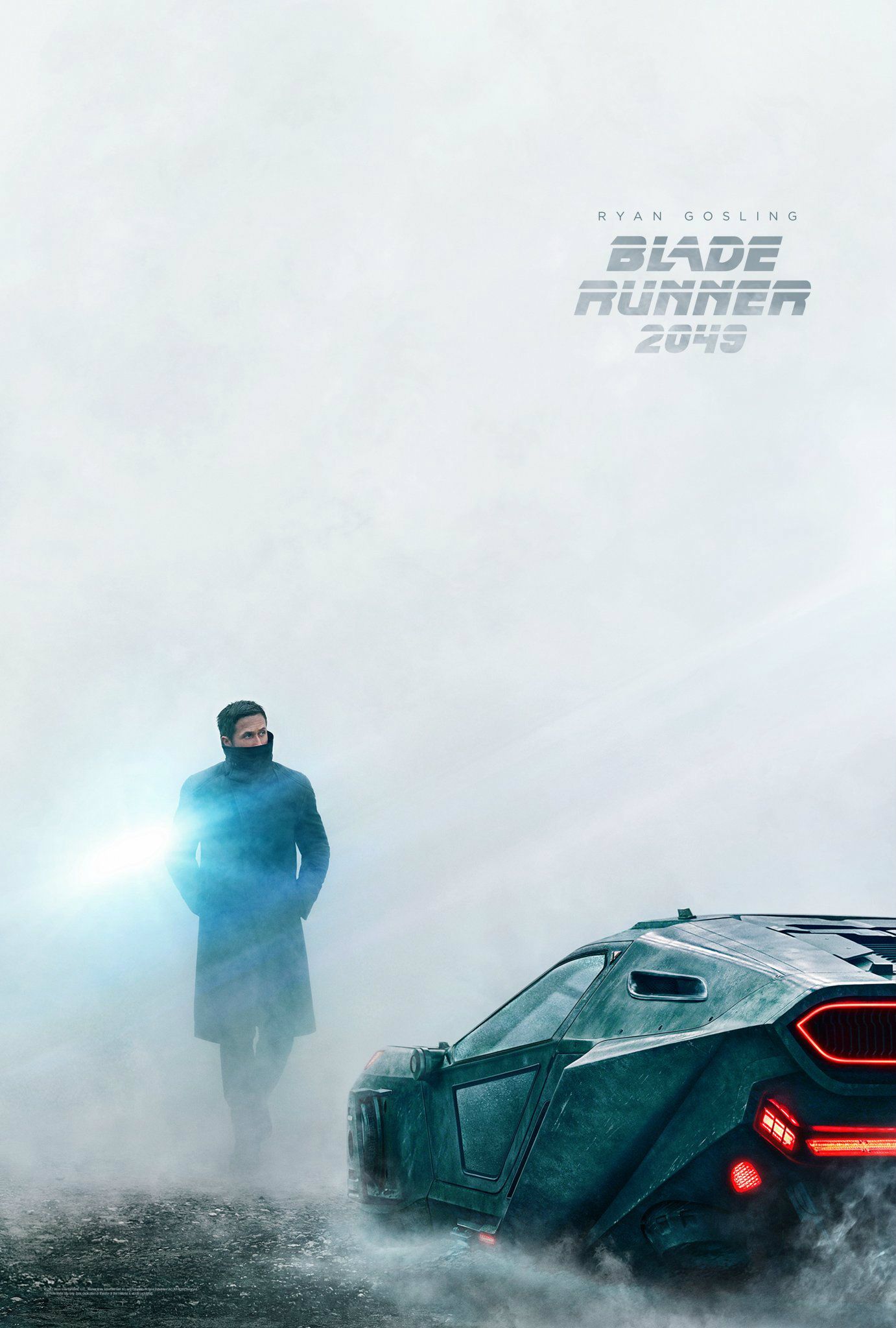Denis Villeneuve's Blade Runner 2049 has been hailed as one of 2017's finest films, and it potentially could have a large presence on this year's awards circuit. Oscar season is now in full swing, with several of the fall festivals either completed or underway. Already, movies like The Shape of Water, Darkest Hour, and Three Billboards Outside Ebbing, Missouri are thought to be legitimate contenders for numerous nominations, and there are other hopefuls that have yet to screen (like Steven Spielberg's historical drama, The Post). Over the next few months, cinephiles will try to predict the Best Picture lineup, always keeping an eye out for dark horses that could find a way into the race.The long-awaited Blade Runner sequel could become one of those unlikely candidates, especially after it earned widespread positive reviews that praised everything from its craftsmanship to its thought-provoking story. While some felt 2049 was boring, the general consensus is that Villeneuve somehow delivered on his promise to make a faithful Blade Runner followup - one that expanded upon the universe and themes established in the original. Though 2049 is unfortunately struggling at the box office, it has a passionate and supportive following, which certainly bodes well for its Oscar prospects. But how far can the film go? Is it destined to just dominate the technical categories, or can it make some noise in the top tier races?
A Technical Marvel
Blade Runner 2049's easiest shots at Oscar gold come in the below-the-line categories, as just about everyone is in agreement the film is masterfully constructed. Using Ridley Scott's vision of a dystopian future from the first film as a jumping off point, Villeneuve recreated the world with modern technology, fully immersing his audience in something that was primarily practical, but still sci-fi. The production design is state-of-the-art, and Roger Deakins' cinematography is characteristically pristine. After being nominated so many times without a victory to his name, many are hoping this is the year the legend finally gets his Oscar. 2049's visual effects are also jaw-dropping, seamlessly blending real-world and CGI elements and pulling off some impressive feats.
2049 should easily match its predecessor's total of two Oscar nominations, which came in the Best Art Direction and Best Visual Effects categories. Those two aspects of Villeneuve's film are unanimously praised, with many admiring the grand sets and scope of the picture. Star Ryan Gosling said that while he was shooting the movie, he could see "where the money was going" in regards to the design, and it's clear the $150+ million budget was well-spent. Deakins is a shoo-in for a 14th nomination, and the sound editing/mixing teams should also be recognized for their efforts. It also wouldn't be surprising to see Hans Zimmer and Benjamin Wallfisch get a nod for their work on the original score, which paid homage to what was done by Vengelis on the first film while also standing on its own. There's always a film or two that dominate these categories, and Blade Runner 2049 has all the makings of one.
Where we stand in the race right now, Christopher Nolan's Dunkirk represents the greatest challenge to 2049 in the crafts. The World War II epic was hailed for its own impressive technical merits, providing audiences with a different kind of experience in a very familiar genre. Coincidentally, both were distributed domestically by Warner Bros., so it will be interesting to see how the studio handles its campaigning. On-paper, Dunkirk is the more "traditional" Academy choice, but as we'll illustrate shortly, the notion of what constitutes as an Oscar movie is changing. WB will surely play the overdue card with Deakins, and sci-fi films usually find support from these branches, due to their portrayals of otherworldly environments. It's true the first Blade Runner didn't find much love in the Academy, but that film was released at a time where Scott's opus was divisive and polarizing. In the decades since, many an industry professional has great reverence for Blade Runner and its impact on movies.
That Blade Runner 2049 should dominate the technical categories (at least in terms of nominations) shouldn't come as a surprise. The larger question here is if it can land any of the above-the-line prestige categories. The double-whammy of being a sci-fi film and a sequel is a big hurdle it has to clear, but there is a precedent here - one that caught even the studio off-guard when it managed to break through and become one of the ones to beat.
The Mad Max Precedent
In 2015, George Miller's Mad Max: Fury Road - itself a long-gestating new entry in a sci-fi series - parlayed its excellent reviews into an incredible display on the awards circuit. Among many of the accolades it received, it earned nominations for Best Picture and Best Director at the Oscars, a feat even the film's most ardent supporters wouldn't have believed when Fury Road debuted that summer. Mad Max owned the crafts categories a couple years ago, taking home six awards by night's end. It was nominated for four other Oscars, and many believed Miller was robbed of the Director trophy, which was given to Alejandro G. Inarritu for his work on The Revenant.
Blade Runner's best chances for "prestigious" nominations come in those aforementioned Director and Picture categories - as it's highly unlikely the script or any of the performances (however great they may be) garner enough support in their respective branches to crack a top five. Villeneuve actually has a little bit of history with the Academy, as his Arrival earned nods in Picture and Director just last year. He's a filmmaker with his fair share of fans in the Academy, so it stands reason to believe those same people will be equally impressed with his achievements on 2049. While both fantastic in their own ways, Blade Runner is arguably a greater accomplishment due to the sheer scale of the undertaking, and represented Villeneuve's continuing evolution as one of this generation's finest directors. Cinephiles have been vocal about their love of Blade Runner 2049, so that's a positive sign.
Since the Academy expanded the Best Picture field in 2009, there have been multiple instances of other tech giants sneaking into the lineup (Avatar, Inception, Hugo, etc.). While a genre film has yet to take home the big prize under the new format, the Oscars have been less averse to nominating them recently than they were in years of five. In order to receive a Best Picture nod, a film has to hit a certain percentage of first place votes in the nomination process, and if Blade Runner gets as much love in the crafts as we think, it should be able to get in as the "token" genre nominee. With the exception of The Shape of Water, there has yet to be a sci-fi/fantasy film to truly lay claim to that title in 2017, and every once in a while, the Academy can go for two. After all, Mad Max was joined by The Martian. Considering Star Wars: The Last Jedi is strictly a commercial play that only lands with the tech branches, Blade Runner could have a whole corner to itself.
It's also worth considering the evolving membership of the Academy and how that could impact what's considered a "typical" Oscar film down the line. This year, the organization invited several actors involved with high-profile tentpole franchises like the MCU, DCEU, and Star Wars. Those thespians have first-hand knowledge of how much goes into producing a film on the level of a Blade Runner 2049, so they might be inclined to place it on their ballots. Also, the last few years have changed what a conventional "Oscar movie" could be, with Mad Max surprising even WB and Moonlight besting La La Land. There will always by a typical Oscar bait nominee (this year it looks like Darkest Hour), but the Academy is broadening their horizons a bit, which is nice to see. The whole point of the sliding scale is the diversify the field, recognizing a variety of films.
Conclusion
Besides genre bias, the biggest thing working against Blade Runner 2049 is that it underperformed at the box office, grossing just $32.7 million domestically in its first three days. While awards hopes aren't always pinned on commercial prowess, there are certain cases where the financials can impact a film's chances. In 2015, Steve Jobs was an on-paper frontrunner with a dream team of Danny Boyle and Aaron Sorkin behind it, but it crashed and burned at the box office rather epically and was essentially left for dead (save for two acting nominations). The Martian only turned into a possibility when it became a box office powerhouse. There's an outside chance Blade Runner fades from the public consciousness due to weak showings, but the word-of-mouth will likely keep it afloat.
Ultimately, the passionate response it what's most important. Villeneuve's Arrival wasn't exactly a commercial juggernaut, opening with a solid $24 million en route to a $100.5 million domestic total - numbers that Blade Runner should be able to match or eclipse. The rest of October doesn't have much in the way of direct competition, so if it holds well, it should do respectably - even if it doesn't quite make back its budget in the U.S. In what is shaping up to be a wide open Oscar race with no true favorite emerging after a handful of fall festivals, something like Blade Runner could crash the party and mix things up. With reviews strong enough, a rising filmmaker behind the camera, and the technical branches set to love it, 2049 could end up being this year's Fury Road and score a Best Picture nomination.

